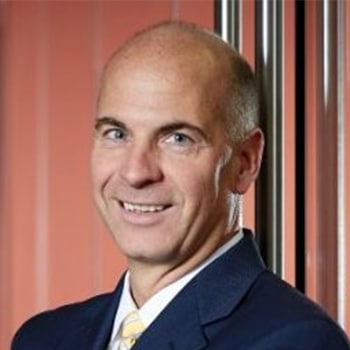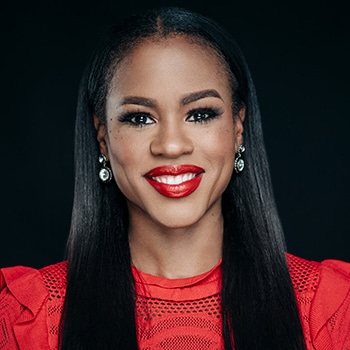Working for Your Team
FreeWheel Media (A Comcast Company)

Brian Wallach - Working for Your Team
Featured Speaker March 25, 2021
Thanks Kelvin, really appreciate it. Laruen, appreciate the opportunity as well. It's obviously been a lot of fun working with you, and I know this year has been incredibly trying so far. I think many of my colleagues and friends have all expressed the pressure, the pace, the frenetic speed, the change – everything is happening it almost seems at breakneck speed since January 1st. Even though we're all looking for that break. As most of us know towards the year you're pushing, trying to close every last deal, get every dollar in, deliver every promise that you've made, and then maybe you do some planning and you're a little bit ahead come January.
But the speed has just been frenetic and I don't see it slowing down. There's a lot of anticipation as Laruen highlighted in some of the questions about what does life after COVID look like and how do you handle that, how do you manage that?
Personally, I've been doing a lot of reading, talking to a lot of friends trying to understand what that environment looks like. And we talk about, you know, when you have talented people how they show up every day when physical you can't actually see anybody except on the video calls. It makes it hard to calibrate talent other than looking at their revenue goals and their calls. So really trying to figure out ways to be present with them, be part of their daily experiences so that you can accelerate with them.
Or what I like to say is for the most part I work for my team, they don't work for me. So as a philosophy my job is to figure out how to remove every single roadblock I can and make it as easy for them to do business as possible.
And sometimes that means making calls for them, sometimes that means helping them with PowerPoints or marketing communities, sometimes that means clearing internal issues with finance or HR or engineering or product. And those are all the things that I look at when I try to help accelerate the team.
Some of the things that you asked me to think about, I have these opportunities where I can help my team understand the amount of effort it takes to get something done. And it's not always just big swings. There's no five-run home run right? You have to constantly be working at it, and hit singles, hit doubles, steal a base, etcetera, because we're just about at baseball season.
But the compound effect is really something that I believe in, and I practice both professionally and personally, making tiny little changes every day and having those stack up. And when you turn around you've built a really strong foundation.
And that's one of the things I was able to do over the last four years at Comcast with this burgeoning opportunity in the advanced TV space. So certainly a new area, a lot of building, a lot of change. The one thing I didn't count on was how to handle diversity with COVID. It has completely changed the core of my business, how people are – all of us as consumers are watching and consuming content, is completely changed on a dime. We sped up the entire ecosystem's evolution from probably a seven- to 10-year horizon to a three- to five-year horizon. Three to five years is really fast when you're trying to build and change a business.
So it's something that we need to lean into and part of that is giving your team the right tools in order to be able activate new business, keep customers happy, provide great levels of service. So I pride myself on trying to teach everybody everything I can and introduce them to great resources to allow them to learn and build upon those learnings to create a successful career.
So that's a lot of what I've got going on in my world. And you know, as a leader I saw some of the comments, it's hard to keep top talent, right? People are motivated by different things. In sale, most of the people are motivated by money. So often it comes down to compensation, which is great. That's one of the easier things to solve. The harder things to solve are the promotions and the titles and all the other things because they impact a lot of other teams and groups beyond just that individual. And those are things that make it much more challenging to keep everyone happy for as long as I'd like to keep everyone happy.
I wish everyone could be an executive vice president and I'll tell them that they're their own CEOs of their own books of business, but that doesn't go very far when they're really looking to advance their career.
So those are some of the challenges I face too when trying to figure out how to keep top talent.
And lastly, to kind of parlay with that, as managers you always see that person that you're like, wow, if they could just do this different, or if they could just stop doing that. And you wind up getting into a position where you're constantly making excuses for people that have potential. And I got advice a long time ago from a tremendous business leader and executive and he said, Brian, you can't fix everybody.
So you really have to understand when it's time to move someone out, which is a really hard thing to do. But do so in a way that’s helpful and not hurtful. And that's something I've been able to do successfully with my network and trying to find new opportunities for people where they can thrive and be successful.







